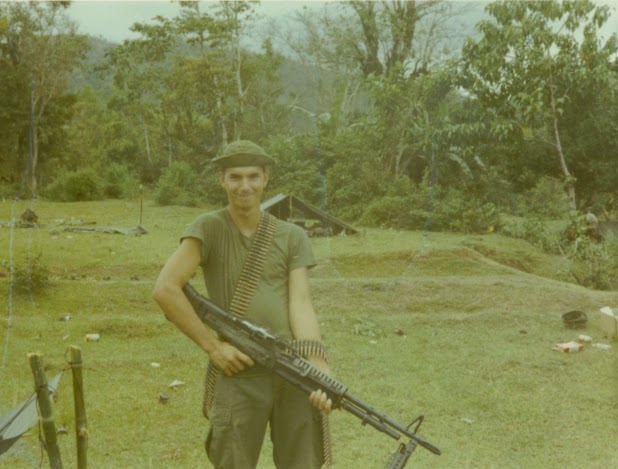ENDORSED BY VIETNAM VETERANS OF AMERICA, October 2013 and ASSOCIATES OF VIETNAM VETERANS OF AMERICA, June 2014.
Search This Blog
Showing posts with label PTSD Research. Show all posts
Showing posts with label PTSD Research. Show all posts
Friday, May 23, 2014
DoD report: Many troops who commit suicide have seen doctor
Nearly two-thirds of active-duty troops who died by suicide in 2012 were seen by a doctor within three months before taking their own lives, and one-third told someone of their plans, according to a Defense Department report released Friday.
Forty-two percent had at least one mental health diagnosis, and one in five were prescribed a psychiatric medication sometime in the 90 days before they died, according to the 2012 DoD Suicide Event Report.
Continue Learning>>>http://www.militarytimes.com/article/20140425/NEWS/304250048/DoD-report-Many-troops-who-commit-suicide-seen-doctor?org=403&lvl=100&ite=9209&lea=964&ctr=0&par=1
Sunday, March 16, 2014
A daughter faces demons of father's war
 |
| Delmer Presley, Christal Presley's father, was drafted before his 19th birthday and served a year in Vietnam. |
"Thirty Days With My Father" is a gritty memoir written by a woman haunted by what some psychologists describe as second-generation post-traumatic stress disorder.
The trauma began in
Vietnam, affected Delmer and then Christal, says psychiatrist Frank
Ochberg, a trauma expert who served on the committee that defined PTSD
in the post-Vietnam era.
Christal, he says, suffered profound injury. And it stayed with her.
Continue Learning: http://www.cnn.com/2012/11/04/us/veteran-daughter-ptsd/index.html
Saturday, March 15, 2014
Suicide in the military: Army-NIH funded study points to risk and protective factors
"These studies provide knowledge on suicide risk and potentially protective factors in a military population that can also help us better understand how to prevent suicide in the public at large"” said National Institute of Mental Health (NIMH) Director Thomas R. Insel, M.D. NIMH is part of the National Institutes of Health.
Although historically, the suicide death rates in the U.S. Army have been below the civilian rate, the suicide rate in the U.S. Army began climbing in the early 2000s, and by 2008, it exceeded the demographically matched civilian rate (20.2 suicide deaths per 100,000 vs. 19.2). Concerns about this increase led to a partnership between the Army and the NIMH to identify risks.
Continue Learning: http://www.nih.gov/news/health/mar2014/nimh-03.htm
Friday, February 28, 2014
VA Concedes Whistleblower's Allegations Were True, Including That It Ignored Veterans' Suicidal Tendencies
A government whistleblower who suffered retaliation from his agency has been vindicated by a Department of Veterans Affairs admission that it failed to reach out to 2,000 veterans in a research study who said they had suicidal ideas, many of whom later committed suicide.
Continue Learning: http://www.ibtimes.com/va-concedes-whistleblowers-allegations-were-true-including-it-ignored-veterans-suicidal-tendencies
Tuesday, July 12, 2011
PTSD RESEARCH: In Purple Heart Medal, Researchers Seek Clues to Combat Stress Resilience & Longer Life
The Source
A study led by Department of Veterans Affairs (VA) researchers found that aging Veterans who earned the Purple Heart show decreased mortality compared with those who had not earned the medal.
The researchers say further studies involving these Veterans, as well as those who were wounded in combat but did not develop PTSD, may lead to new insights to help prepare future Servicemembers to cope with the stress and trauma of war.

A study led by Department of Veterans Affairs (VA) researchers found that aging Veterans who earned the Purple Heart show decreased mortality compared with those who had not earned the medal.
Additionally, those war-wounded Veterans who survive into later life—especially those who do not develop posttraumatic stress disorder (PTSD)—may provide valuable clues as to the factors that lead to resilience to combat stress.
The researchers say further studies involving these Veterans, as well as those who were wounded in combat but did not develop PTSD, may lead to new insights to help prepare future Servicemembers to cope with the stress and trauma of war.

Subscribe to:
Posts (Atom)



